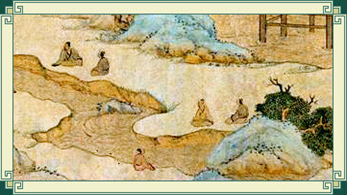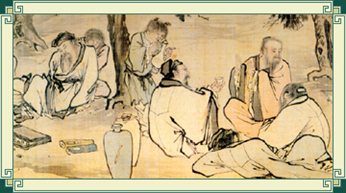Wine morality
Wine "virtue"
Since ancient times, China has been a land of propriety and propriety. Propriety is also reflected in every aspect of daily life. For example, there should be wine virtue when drinking. Wine virtue refers to the moral norms and manners when drinking alcohol. The degree of virtue, the loss of virtue, bad interest without virtue.
The word "wine virtue" was first found in Shang Shu and the Book of Songs. Shang Shu · The Patent Wine Patent even put forward the requirements of "Yin Wei Qi" (drinking only in sacrificial activities), "no Yi wine" (not drinking regularly), "Shou Qun Yin" (not drinking in crowds) and "forbidden to indulge" (forbidding excessive drinking). It can be seen that Confucianism does not oppose drinking, but requires drinking should have etiquette norms.
Many ancient doctors, from the perspective of health, pointed out the harm of excessive drinking and advocated drinking according to one's ability. Li Shizhen (1518-1593) of the Ming Dynasty pointed out in the Compendium of Materia Medica that "if a man indulges in mindlessness and is drunk and thinks he is normal, he will suffer from illness and failure, or even lose his life.".
The ancients advocated drinking in moderation, not in excess, and did not approve of full drinking. In the Annals of The Three Kingdoms, Pei Songzhi (372-451) has excerpted a statement on drinking No (210 -- 256) written by the famous scholar Guant-ant-No. I want to hold wine with courtesy, hold only with foolishness, why have trouble?" This is about drinking and learning, but the subtext reveals the principle of "full recruitment loss, modest benefit".
Although you can drink alone, you are more likely to drink with others. At this time, we should not only control ourselves, but also force people to drink. Chen Jiting, a man of the Ming Dynasty (whose birth and death dates are unknown), once said, "A gentleman who drinks wine is frank and generous; a scholar who is refined and elegant is always polite. A man who works as a servant in the marketplace is respectful, generous, and joyful. A scholar who is also learned from practice must be rude and unjust.". The meaning of this passage is that a gentleman who drinks wine should be more frank and elegant and enjoy himself. Marketplace servants and the like often drink from the sea and force them to get drunk. If someone does this, he or she must be a person who does not study and does not know etiquette. Unfortunately, this kind of bad habit criticized by the ancients is widespread in today's prosperous culture.




